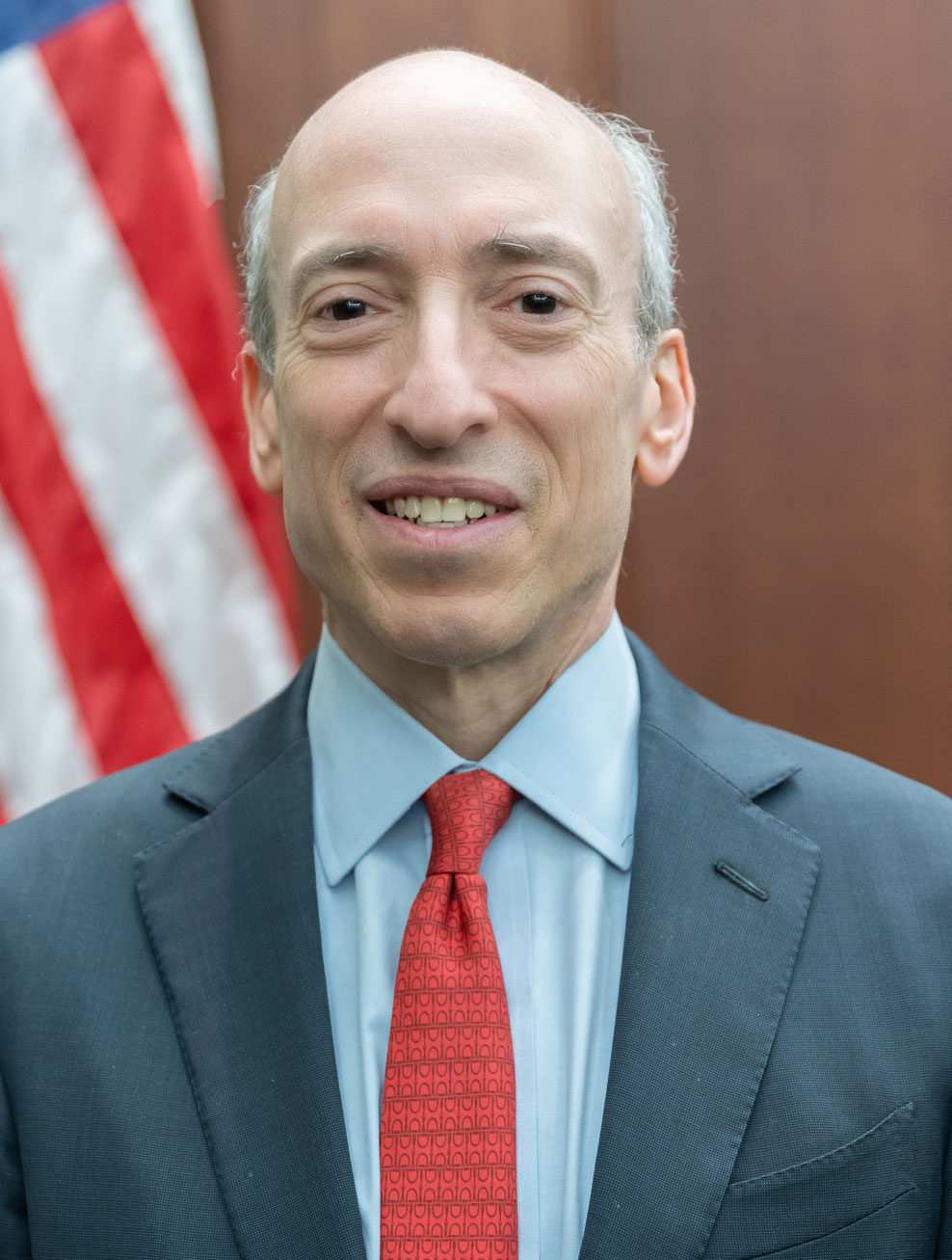Whatever happens next, Gensler has been a busy SEC Chair who had a major impact on Ops.

Grygo is the chief content officer for FTF & FTF News.
With the second Trump administration coming to power in January, Gary Gensler, chair of the Securities and Exchange Commission (SEC), is unlikely to be a part of the new team. During the campaign, Trump stated that he would replace Gensler. In fact, multiple media outlets have recently reported that Trump’s transition team is searching for a replacement for Gensler, whose official term ends in 2026. In 2021, the U.S. Senate confirmed Gensler’s appointment to a five-year term.
After his inauguration, Trump has some options. He can appoint an interim SEC chair to replace Gensler. Trump could also wait and nominate Gensler’s permanent replacement, who must be approved by the U.S. Senate. Or Trump could take both actions and replace the interim chairperson with the Senate-approved one. In any case, Gensler will likely step down before his term ends.
So, as the transition gets underway, it’s important to note that Gensler was a prolific change agent, which garnered fans and foes for him. In time, there will be in-depth assessments of his tenure at the top. But, for now, let’s take a quick look at the major operations- and cutting-edge-related concerns that arose during his chairmanship.
The Crypto Battles
During a recent interview with Bloomberg TV and radio before the election, Gensler was asked about the potential of a jurisdictional framework for crypto regulation that would act in parallel with the SEC. Gensler has resisted creating new regulations for crypto and other digital assets, preferring to argue that if these instruments are serving as securities then they are in scope for established laws and regulations. This stance has spurred a lot of controversy.
“There’s nothing incompatible about a ledger technology, decentralized ledger technology, and the securities laws. And it’s important that in the securities markets that investors get to decide on their investments, but they get the proper disclosure,” Gensler tells Bloomberg. “We’ve seen the challenges in this field where a lot of … regular investors have lost money in a field that’s not providing the fundamental disclosure about their projects, about these investment contracts and these schemes, and that it’s a field that has a lot of conflicts in the middle of it.”
Many in the cryptocurrency community say that Gensler’s approach “was out of touch with the fast-evolving nature of digital assets,” Tom Kiddle, a co-founder of Palisade, a digital asset custodian backed by Ripple, tells FTF News.
“Instead of working collaboratively with the sector to develop clear, forward-looking regulations, Gensler’s department focused heavily on enforcement over engagement, distressing major exchanges like Coinbase and Binance without offering clear guidance on compliance,” Kiddle says. “Gensler’s insistence that many digital assets should be classified as securities seemed out of step with the realities of decentralized technology. Instead of creating rules that could evolve with the industry, Gensler seemed intent on force-fitting crypto into the existing financial system, ignoring the opportunity to create policies that could both protect investors and unleash the transformative potential of blockchain technology,” he adds.
The Trump team is likely to take a more pro-crypto stance, which may lead to multiple regulatory changes, including a new framework for digital assets. Trump’s SEC could also mean more and faster approvals for digital asset securities and related crypto innovations.
T+1 in North America
At the SIFMA 2024 Annual Meeting in Washington D.C. last month, Gensler offered a review of the SEC’s record under his tutelage and he cites the move to T+1 as a key success.
“GameStop was a real-world example that the market plumbing of clearing and settling transactions matters. Rapidly changing prices led a number of brokers to restrict additional buying activity by their customers due to the clearinghouse making larger than usual margin calls. Many everyday investors lost access to the market at a critical time,” Gensler says in the SIFMA speech. “The longer it takes for a trade to settle — the slower the plumbing — the more risk our markets assume and the more risk fundamentally that we all assume.”
He also says that on May 28, 2024, the industry — with direct involvement via the SEC — achieved T+1 settlement. “The equities, corporate bonds, and municipal markets successfully moved to T+1 (aligning with the Treasury markets, which had already been at T+1). Further, market participants are now required to confirm, affirm, and allocate their trades as soon as technologically practicable on the same day as the trade,” Gensler says.
“Market participants, including many of you in this room — from the clearinghouses, depositories, custodian banks, broker-dealers, investment advisers, self-regulatory organizations, stock exchanges, service providers, and industry groups — worked, along with SEC staff, to make the transition happen smoothly,” Gensler says. “Cutting the clearance and settlement cycle in half also reduces the amount of margin, or collateral, that must be placed with the clearinghouse. The way the math works it’s likely to average 29 percent savings over time. First indications reported by the clearinghouses show a savings of 23 percent, or about $3 billion, resulting from the move to T+1.”
The next big challenge for T+1 will be global coordination among regulators and industry participants here and in Europe, the U.K., and Asia-Pacific.
Securities Lending
In the SIFMA speech, Gensler also notes that “in October 2023, we adopted a rule to bring greater transparency and efficiency to the securities lending market. The more than $3 trillion securities lending market can help investment funds, endowments, and pension funds generate additional revenue. This market, though, is opaque. The public often cannot access data about it unless they purchase a subscription.”
However, the SEC chair says the commission fulfilled “Congress’s mandates with regard to the transparency of short selling and securities lending, these rules will help ensure regulators and market participants benefit from this comprehensive and timely information.”
The Record-Keeping Crackdown
Staring in late 2021, the SEC has punished some of the securities industry’s most highly respected firms for allegedly violating its recordkeeping rules — taking a big bite from industry leaders’ bankrolls. For instance, for the fiscal year that ended Sept. 30, 2023, the SEC said 25 of the firms it regulates were hit with $400 million in fines and penalties. The commission’s penalties for recordkeeping violations in 2022 were three times that. The enforcement focus on recordkeeping rules, particularly about the use of unauthorized, off-channel communications, caught Wall Street firms and their lawyers by surprise. Applications like WhatsApp and similar modes of communication that don’t create records or leave audit trails have been ubiquitous for years, and their use has been the focus of the crackdown, which has continued to the present.
Next Steps
FTF News reached out to Gensler to get his reactions to the speculation about his replacement and what he thinks are his major accomplishments.

Gary Gensler
“The SEC under Chair Gensler has been one of the most productive commissions on behalf of issuers and investors since the agency was created 90 years ago,” a spokesperson for the SEC tells FTF News. “The reforms adopted over the last three-and-a-half years enhance efficiency, competition, and investor protection in the U.S. capital markets. The agency’s enforcement actions have held wrongdoers accountable and returned billions to harmed investors.”
It appears that Gensler will be busy throughout this period of uncertainty.
“We laid out an agenda of 50 or 55 projects three and a half years ago,” Gensler told Bloomberg. “We’ve actually gotten across the line, proposed and adopted, 43 of those. … We’re still working on some rules around [the] market structure of the treasury market, some rules around central clearing and segregation of funds and the like, but we’re going to continue to move forward and elections have consequences. That’s a great thing of our democracy.”
Over the next two months, Gensler (and the Trump team) may have a few surprises in store for the SEC and its regulatory efforts. We’ll keep you posted.
Need a Reprint?
[…] not keeping proper records. This shows a big increase in how strictly they are enforcing the rules3. We’re seeing a tough review of exchanges to maintain transparency and follow the laws in […]